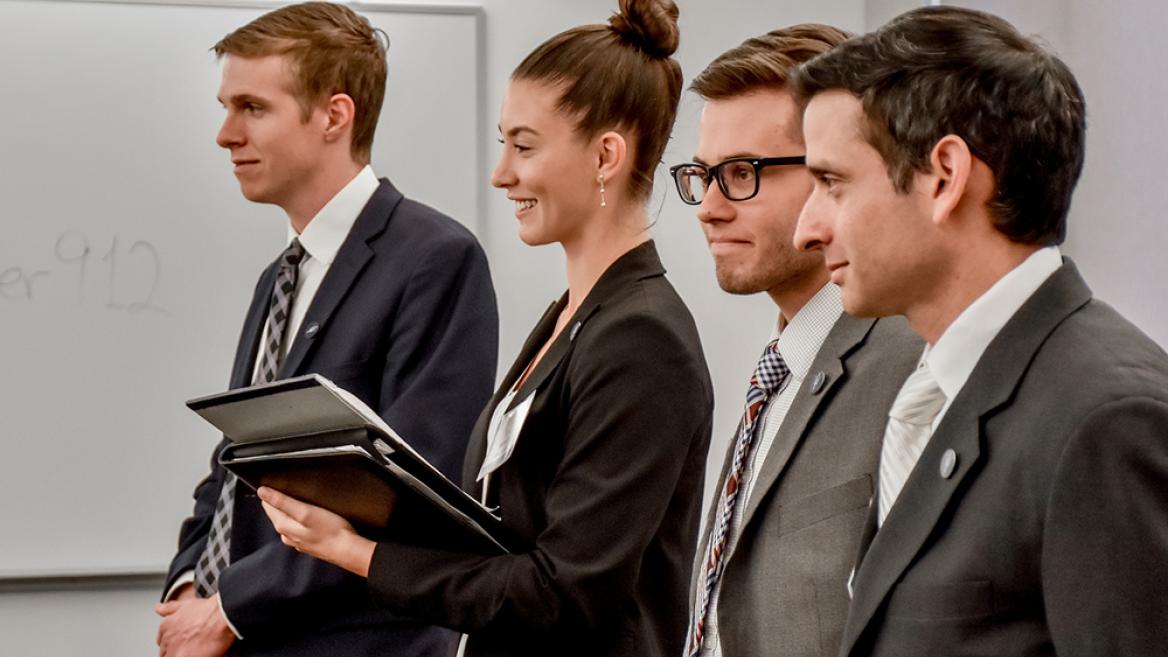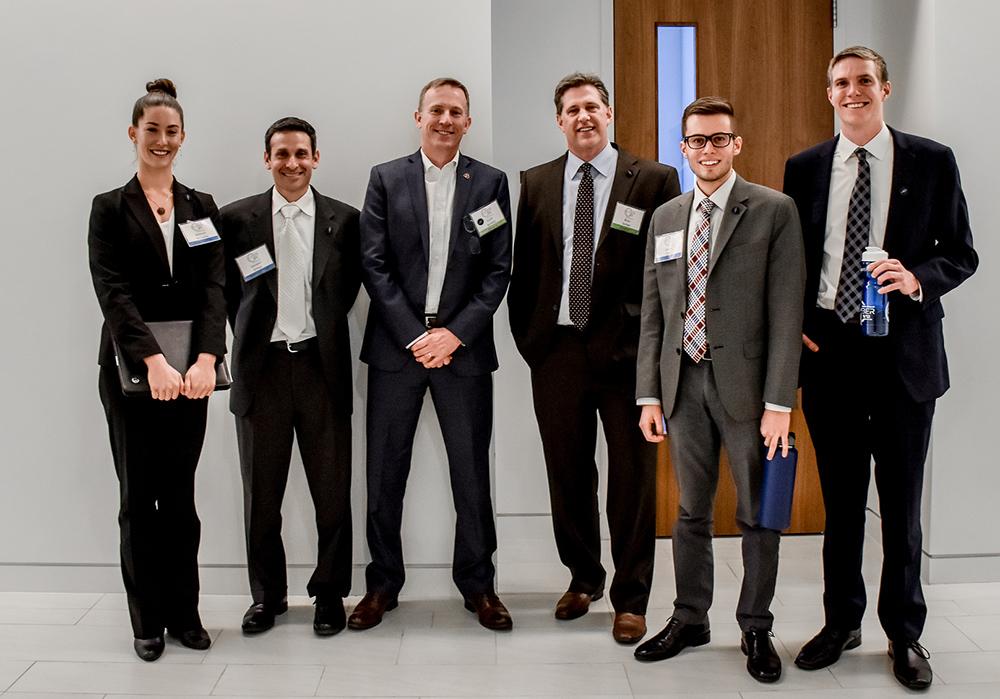
ASU students encouraged to enter Cyber 9/12 Challenge
Becca McCarthy entered the Cyber 9/12 Student Challenge because she wanted to gain more experience with policy outside of her classes. She got that and more.
“It was an incredibly eye-opening experience,” said McCarthy, a public policy graduate student in Arizona State University's School of Public Affairs. “I hope to see the ASU competition continue to grow.”
The one-of-a-kind competition imparts a deeper understanding of the policy challenges associated with cyber crisis and conflict. ASU hosts a local competition in partnership with the Atlantic Council in Washington, D.C. The national competition in D.C. will be held in the spring, 2018. These events is billed as “part interactive learning experience and part competitive scenario exercise.”
In March, a total of 40 teams from 25 universities took part in the national competition in Washington, D.C. For the competition, four-member teams are given a realistic scenario involving a cyber attack somewhere in the world. Students are asked to analyze the threat to national, international, and private sector interests, prepare policy recommendations and defend their decision-making process. Teams must consider the roles and implications for relevant civilian, military, law enforcement, and private sector entities. And during the actual competition, they must update those recommendations as the scenario evolves.
For McCarthy, who has an undergraduate degree in sustainability, cyber policy was a completely new field.
“We were able to network, gain exposure to new information, and discuss topics directly with prominent policy developers, leaders in technological innovations, agency leaders, and many more influencers in cyber policy,” McCarthy said. “Even if cyber policy is not your direct field of study, competing in the challenge and gaining new knowledge about this field of policy may spark a new passion!”
ASU hopes so. Students are currently being recruited to compete in the ASU local competition in November. Students can enter as a team of four or as individuals who will be matched with other students to create a team. There is a nominal cost of $15 per student that covers the cost of lunch and snacks.for competitors. Applications will be accepted until Oct. 21. An information session is scheduled for 11 a.m. Thursday, Sept. 7 on the downtown Phoenix campus.
“This is a fantastic opportunity for students from any major at ASU,” said associate professor Brian Gerber, director of ASU’s graduate program in emergency management and homeland security and coordinator of the ASU Cyber 9/12 Student Challenge. “They’ll gain in-depth knowledge about cybersecurity — and the associated societal threats that will only grow in magnitude over time. And the winners of the ASU competition will represent ASU at the national event in D.C.”

From left: Becca McCarthy, Salvador Ortega, ASU professor Scott Somers, Brian Gerber, Zak Ghali and Max Gosher at the Cyber 9/12 Student Challenge in Washington, D.C.
As far as what students will face, a prior cyber challenge involved a hypothetical cyberattack that could have brought nuclear-armed rivals India and Pakistan to the brink of war. The scenario started with the hacking of a US defense contractor’s computer systems. The unknown hackers stole highly sensitive data and could potentially take over Global Positioning System satellites. U.S. military radio frequencies and mobile phones were at risk, creating the potential havoc for fighter jets and commercial airlines alike.
To make matters worse, the hypothetical scenario involved non-state actors claiming responsibility for the cyber attack. As tensions escalate, Pakistan shoots down an Indian airliner that had mistakenly entered its airspace over the contested Kashmir region.
"The most difficult part was the learning curve as I knew nothing of cybersecurity going in, so I had to learn everything — history, acronyms, technological feasibility — quickly," said Zak Ghali, a teammate of McCarthy's. "This was also very rewarding, as I got to challenge myself to think of things I had never thought of before."
During the competition, teams present their proposed strategic and tactical responses to a panel of experts in the field who simulate leaders at the National Security Council. They are judged on the quality of their decision document, their decision-making processes, and their oral presentation.
A public policy graduate student in the ASU School of Public Affairs, Ghali says the Cyber 9/12 challenge gave him insight about the strengths and weaknesses of those practicing in our government today. He also gained an appreciation for cybersecurity.
"The best part was when my team had ah-ha moments and came up with a creative policy solution," Ghali said. "We all had different areas of expertise, so to see it all come together was really exciting."
Ghali, McCarthy and teammates Max Gosher and Salvador Ortega made up one of two ASU teams that competed in Washington, D.C. Both ASU teams made to the semifinals where they were given a new intelligence report and very little time to adapt their recommended policies and responses. With newly adapted recommendations in hand, teams present their case to a panel of judges who, in turn, question the students about their proposal. Teams with the highest scores on their oral presentations advance to the finals.
"I'm extremely proud of our teams that competed in the national competition, they represented ASU quite well," Gerber said. "We were the only university that had two teams that made it into the semi-final round."
Gerber will hold a series of information sessions for any ASU students interested in competing in next year's challenge. More information is available at https://publicservice.asu.edu/content/cyber-912.